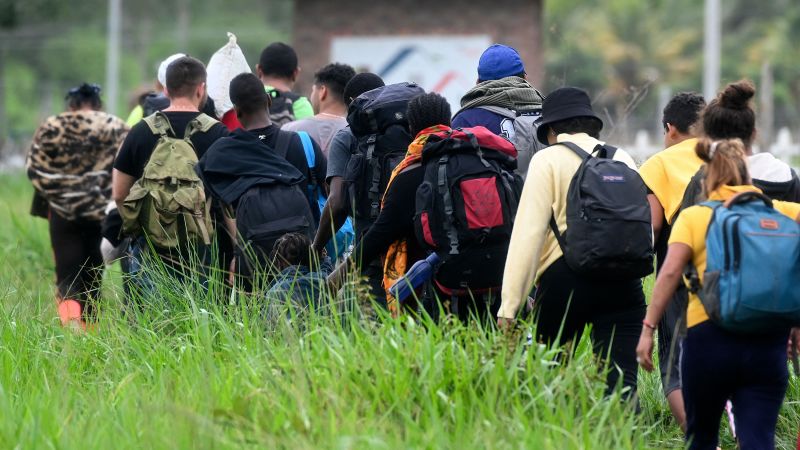The Department of Homeland Security (DHS) has announced its intention to end a significant form of humanitarian assistance known as Temporary Protected Status (TPS) for migrants originating from Nicaragua and Honduras who currently reside in the United States. This decision comes in light of draft notices published in the Federal Register and represents a continuation of actions taken during the Trump administration that sought to revoke protections from several nationalities residing in the country. The DHS’s move will particularly impact around 72,000 individuals from Honduras and an estimated 4,000 from Nicaragua.
The introduction of TPS to protect migrants from these Central American countries can be traced back to an environmental disaster in 1999. The program was initially created to provide relief to those unable to safely return home due to ongoing violence, political instability, or natural disasters. Legal challenges have surfaced across the nation as federal judges have intermittently blocked previous moves to revoke TPS, arguing that conditions in the home countries still necessitate this protection, highlighting the contentiousness of immigration policy in the United States.
Homeland Security Secretary Kristi Noem articulated the administration’s rationale behind terminating TPS, asserting that the policy was never intended to serve as a permanent solution. In her statement, she emphasized that the government of Honduras has taken the appropriate measures to recover from the catastrophic effects of Hurricane Mitch, which struck nearly three decades ago, indicating that the original conditions which warranted TPS are no longer relevant. This assertion raises questions about the validity and assessment of current conditions in these nations, as various advocacy groups and individuals fear that the termination of TPS could lead to dire consequences for those affected.
Historically, Temporary Protected Status has been implemented by both Republican and Democratic administrations based on varying conditions faced by individuals in their home countries. Those protected under TPS apply due to the extreme hardships they would confront if forced to return to their native lands, which remain grappling with the consequences of armed conflict or natural disasters. The program’s implementation has often sparked debates among lawmakers, particularly among Republicans who contend that the relief should not be extended indefinitely.
As these developments unfold, many questions loom regarding the future of thousands of migrants who have made the United States their home under the protection of TPS. Moreover, the economic and social ramifications of sending these individuals back to their home countries remain to be seen, especially in light of the precarious situations that many may face if reverted to conditions that warranted initial protections. The debate over immigration policy continues to evolve, and with it, the fates of countless individuals hang in the balance as they await decisions that could inherently alter their lives.
In summary, the DHS’s proposed termination of TPS for migrants from Nicaragua and Honduras marks a significant shift in U.S. immigration policy that has implications for tens of thousands of individuals under its protective umbrella. The longstanding history of humanitarian aid through TPS reflects a broader narrative surrounding immigration that often fluctuates in response to changing administrations and evolving national interests. As legal battles ensue and public opinion sways, the Pfutures for these individuals and the program itself remain uncertain. The complex interplay between policy, governance, and the human experience looms large as this outcome unfolds. Whether the termination will withstand legal scrutiny or if a new resolution will emerge remains to be determined in the coming months.











